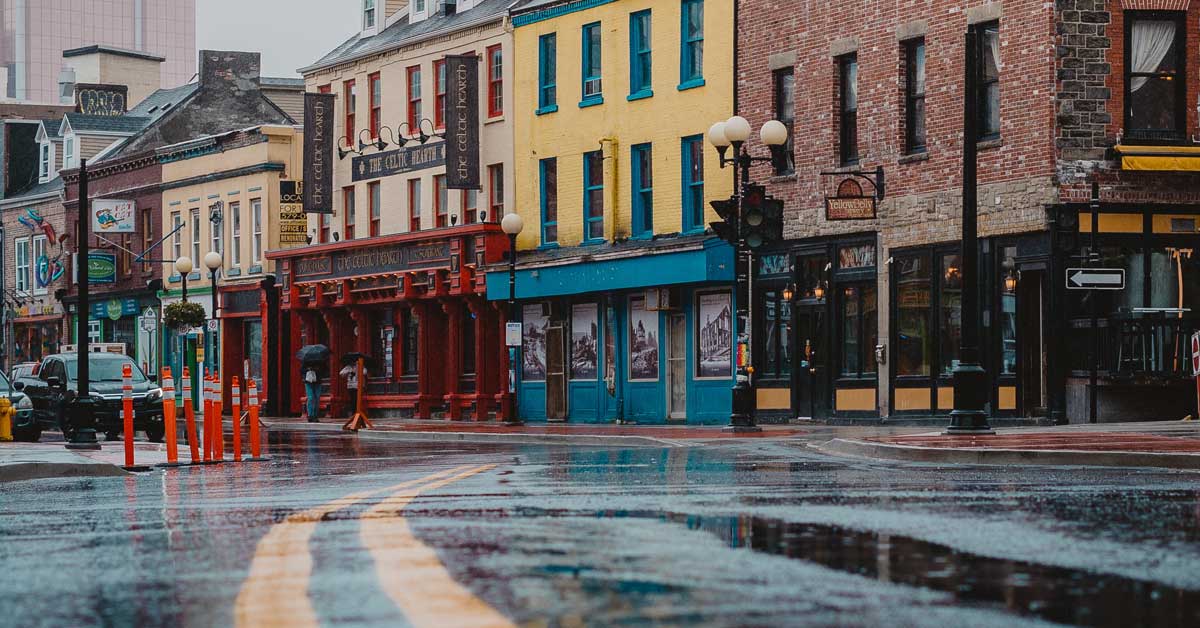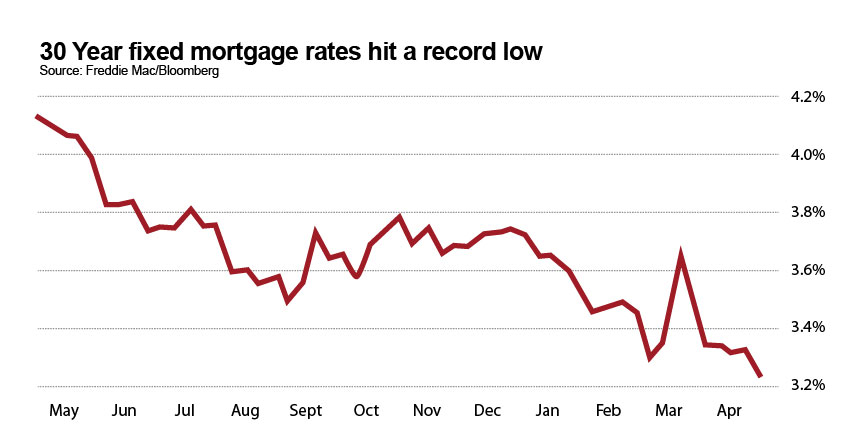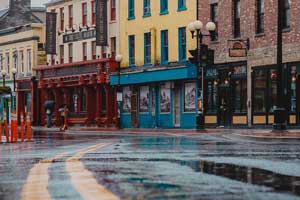(Please note; This article was written in early may of 2020, this is a fast moving story and some of the facts stated here may have changed)
A recent Harris poll states that in the wake of the pandemic nearly a third of Americans are considering moving to less densely populated areas. Such numbers may predict a shift in residential real estate sales and home prices.

That same survey showed that urbanites (43%) were twice as likely as suburbantes (26%) and rural (21%) dwellers to have recently browsed a real estate website for homes and apartments to rent or buy.
Coronavirus and real estate
You only have to take a look at the top 20 Coronavirus hot spots in the US to see that large cities are faring poorly during this time. The top 20 list of most impacted metro areas include places like New York-Newark-Jersey City, New Orleans-Metairie and Detroit-Warren-Dearborn. It stands to reason that densely packed, urban islands which rely heavily on public transportation and apartment living would be ground zero for any epidemic. Especially one that seems to be transmitted via close person-to-person contact.
A recent article in the National Review was entitled “Moving Out and Not Coming Back” examined the long term effects of the current pandemic on the housing market. Here are a few of the conclusions;
People everywhere are leaving the city behind (if they can)
The article cites a woman named Wendy Silverstein who has called the East Village home for 30 years. When her husband, came down with COVID-19 she decided it was time to leave the city. She and her husband drove Upstate to Canaan, a tiny town in Columbia County, to stay with their step daughter.
As they settled into their new suburban lifestyle one thing became increasingly clear; they’re probably not moving back. Even if it’s deemed safe to return, they’ve decided the city is no longer for them.
 All the things that once made city dwelling so attractive are now cause for concern: Large crowds of people, public transportation, cafe’s, bars, concerts. It’s not clear when (or if) these activities will return and if they do, will people rush to enjoy them at the risk of getting sick. Every day there is a new report of an activity that urban populations have abandoned. At the same time rural dwellers discuss how “social distancing” is a natural part of their lifestyle and how they have yet to see the first case of Coronavirus.
All the things that once made city dwelling so attractive are now cause for concern: Large crowds of people, public transportation, cafe’s, bars, concerts. It’s not clear when (or if) these activities will return and if they do, will people rush to enjoy them at the risk of getting sick. Every day there is a new report of an activity that urban populations have abandoned. At the same time rural dwellers discuss how “social distancing” is a natural part of their lifestyle and how they have yet to see the first case of Coronavirus.
The trend towards the de urbanization in America will accelerate.
The last 50 years has seen the steady de-urbanization of America. The 70’s saw the hollowing out of once vibrant city centers and the 80’s and 90’s saw the rise of so called “Edge cities” like Westchester in New York and the towns of Fairfax county in Virginia. The virus will accelerate this trend and find people wanting to leave behind their apartment in the city for a place where they can walk in peace and quiet…and safety.
Southern California is a slightly different story
 The relatively low numbers of CoronaVirus cases in California highlight the differences between our suburban lifestyle and the more urban, centralized way of living “back East” Surprisingly it’s not due to the fact that we live farther apart, in fact Coastal California has a higher population density than the NorthEast Corridor. (Coastal California has a population per square mile of 2,200 people while the Northeast corridor (excluding New York) has a density of about 1100 per square mile.
The relatively low numbers of CoronaVirus cases in California highlight the differences between our suburban lifestyle and the more urban, centralized way of living “back East” Surprisingly it’s not due to the fact that we live farther apart, in fact Coastal California has a higher population density than the NorthEast Corridor. (Coastal California has a population per square mile of 2,200 people while the Northeast corridor (excluding New York) has a density of about 1100 per square mile.
However a lower proportion of Californians live in apartments and travel by public transportation. Social distancing is an automatic thing if you travel alone in your car to work every day.
Not all bad
As one might expect recent events have caused mortgage rates to tumble. According to Freddie Mac The average rate for a 30-year loan was 3.23% the lowest in almost 50 years. The previous record was 3.29%, reached in early March.

The Federal Reserve has been working hard to calm the mortgage market and has cut it’s benchmark rate to almost nothing. It has also reassured investors that it is ready to buy an unlimited amount of mortgage-backed securities.
Of course low mortgages are little consolation for people who are out of work or are struggling to pay their current mortgage. The number of people looking to buy, or qualifying for a loan is low. And psychologically it seems unlikely that anyone want’s to take on more debt or change their living situation in this time of massive insecurity.
This article cites economist Lawrence Yun who projects a 14% decline in home sales for the year.
In conclusion
These are uncertain times and there will undoubtedly be huge changes in every aspect of our lives. However it seems certain that the current trend of re-urbanization is coming to an end as people look towards the suburbs to get away from crowds and the potential for illness. It also seems certain that the housing market, like everything else in American life is facing years, if not decades, of uncertainty.
More information
Report: 33% of LA apartment hunters looking to move to other cities
These New Yorkers fleeing coronavirus vow they’ll never return
Beware when purchasing property during recession
How much US home prices are expected to drop



